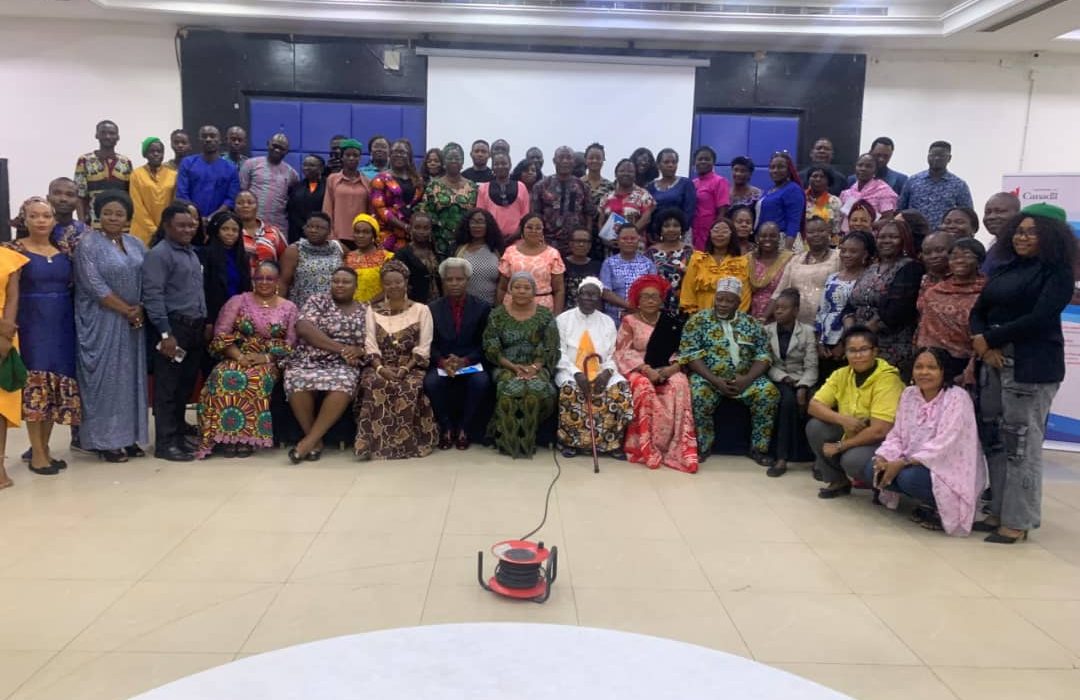By Godwin Ajom
Women in Cross River State have expressed frustration over the ineffective implementation of the 35% Affirmative Action (AA) policy, stating that it is not achieving the expected outcomes.
These concerns comes from women across various sectors, including political parties, civil society, government institutions, and pressure groups, all of whom have voiced their dissatisfaction.
The AA policy, established in 2006 by Nigeria’s National Gender Policy (NGP), aimed to ensure that 35 percent of leadership positions are occupied by women through their involvement in politics and governance processes.
However, eight years into its implementation, women from different backgrounds are disappointed that the policy is neither being adhered to nor yielding the intended results. They believe that inadequate structures and processes are hindering its effective practice.
A March 2024 report by UN Women highlights this issue, noting that among the 13 countries that held elections in 2023, Zimbabwe (45%) and Eswatini (43.3%) had the highest shares of women elected to their upper parliamentary chambers. In contrast, Nigeria had the least gender-representative parliament in the region, with women comprising only 2.8% of MPs in the upper chamber and 3.9% in the lower chamber following the 2023 elections.
The report states, “Women’s representation in the Senate (the upper chamber), which was already extremely low, shrank further by 3.7 percentage points in 2023. Only three women were elected in 2023, representing just 2.8% of the total membership of the chamber. Women also remained vastly underrepresented in the House of Representatives (the lower chamber). In 2023, just 14 women were elected to the 358-seat chamber, accounting for 3.9% of all MPs – marginally higher than the 3.4% share recorded following the previous election.”
At a one-day stakeholder meeting organized by Gender and Development Action (GADA), supported by UN Women and the Canadian Government, discussions focused on boosting female representation in Nigerian politics. Honorable Nkoyo Toyo, a former Member of the House of Representatives and Nigeria’s ex-Ambassador to Ethiopia, lamented the consistent decline in women in leadership positions over the past 25 years.
She emphasized the need for women to brainstorm and strategize for better outcomes in the upcoming local government elections in Cross River and the 2027 general elections, given the ineffectiveness of the current affirmative action policy.
“As women, folding our hands and doing nothing is not an option; that is why we are gathered here to have these conversations towards the LG polls and 2027 general elections,” Toyo stated.
Mrs. Edema Irom, Cross River’s Commissioner for Women Affairs, echoed her sentiment, urging women to aim for positions beyond “women leaders” as party congresses approach. She advocated for more women in decision-making roles, emphasizing the importance of practical inclusion.
“In the last local government elections in Cross River, 12 women became Vice Chairmen. This time, we want 12 female Local Government Chairmen with men as their deputies. With proper advocacy, lobbying, and consultations, achieving this is possible,” Irom said.
Mrs. Mercy Akpama, a member of the Cross River House of Assembly, called on women to pursue leadership roles in their communities, churches, and political parties. Akpama, the only woman elected to the Cross River House of Assembly, expressed her dissatisfaction with the current representation and stressed the importance of working with the Governor’s wife and others to secure more leadership positions for women as the local government polls approach.
Since You Are Here, Support Good JournalismCrossRiverWatch was founded on the ideals of deploying tech tools to report in an ethical manner, news, views and analysis with a narrative that ensures transparency in governance, a good society and an accountable democracy. Everyone appreciates good journalism but it costs a lot of money. Nonetheless, it cannot be sacrificed on the altar of news commercialization. Consider making a modest contribution to support CrossRiverWatch's journalism of credibility and integrity in order to ensure that all have continuous free access to our noble endeavor. CLICK HERE |
New Feature: Don't miss any of our news again.Get all our articles in your facebook chat box.Click the Facebook Messenger Icon below to subscribe now
Text Advert by CRWatch :Place Yours

Will You To Learn How To Make Millions Of Naira Making Special Creams From Your Kitchen?.Click Here
Expose Your Business And Make More Sales. Advertise On CrossRiverWatch.com Today



Leave feedback about this